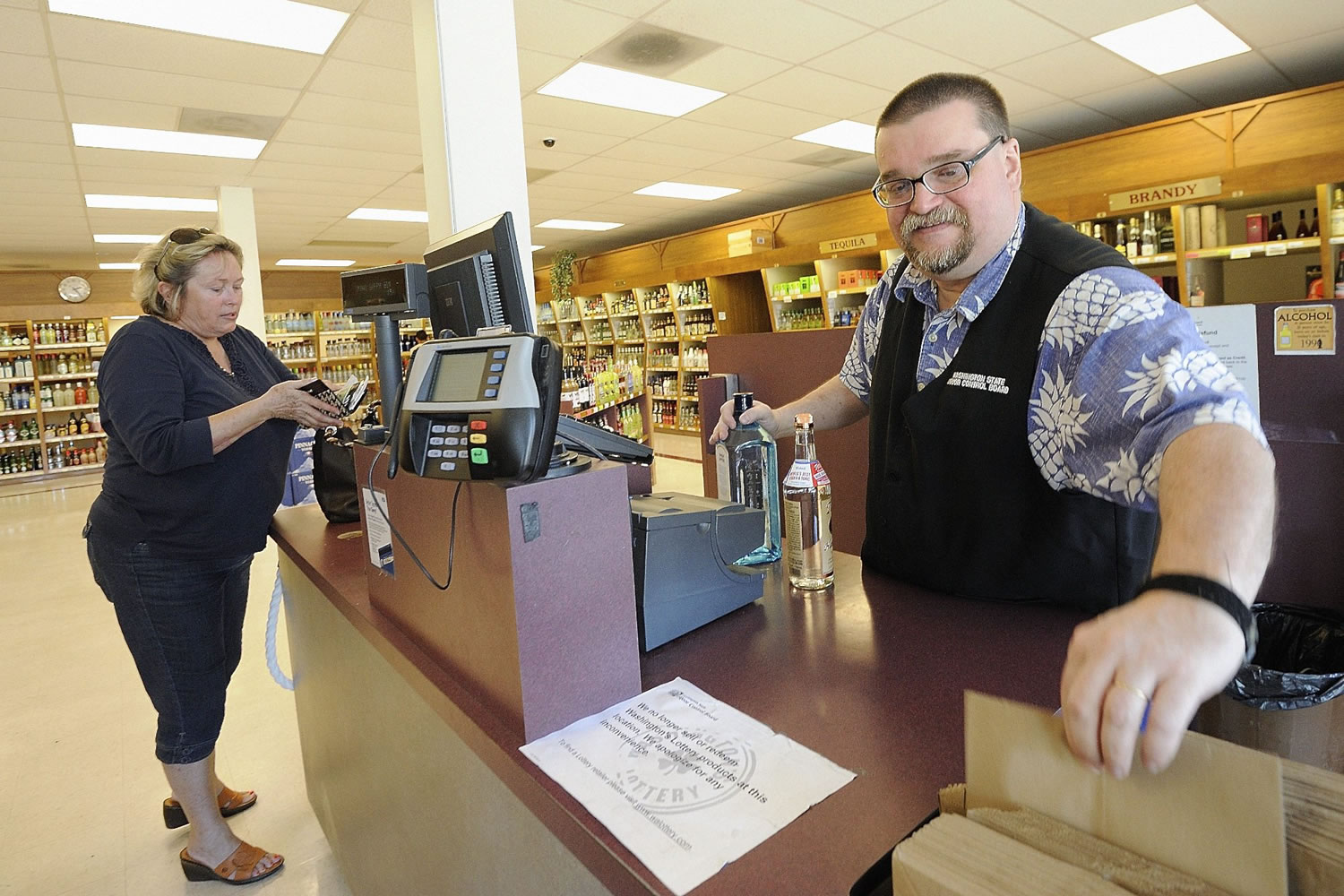Clark County leaders are calling on Gov. Chris Gregoire to veto portions of the a bill that eliminates $10 million in state-shared liquor sales revenues.
The move puts the state’s budget problems on the backs of Washington’s cash-strapped cities, said Vancouver Mayor Tim Leavitt, whose city stands lose $861,084 a year if Gregoire passes Senate Bill 2823 as it stands.
What cities will lose a year if $10 million in liquor sale revenues are no longer shared by the state:
Battle Ground — $93,858
Camas — $103,006
La Center — $14,901
Ridgefield — $25,348
Washougal — $75,061
Vancouver — $861,084
Woodland — $29,515
Yacolt — $8,334
The Association of Washington Cities and Vancouver City Manager Eric Holmes wrote the governor’s office last week, asking for a partial veto.
“For more than 70 years, the state has shared liquor revenues with the cities because of the impacts that alcohol consumption has on public safety and health costs at the local level,” Holmes wrote. “Those impacts will not be going away, and will likely increase with the passage of (the bill).”
The move follows an AWC letter sent in November signed by 115 Washington mayors, including five from Clark County, asking for relief.
Leavitt said Wednesday that every $100,000 in lost revenue is about the cost of one employee’s salary and benefits, depending on the job.
This loss “very well could result in the loss of additional employees on the local level,” he said. He said that the privatization bill’s plans to take money from the city’s general fund is “absolutely the wrong time,” due to the increased burden the expansion of liquor sales could put on law enforcement.
“That’s money we use to provide important local services — police and fire and road maintenance and the like,” Leavitt said. “This puts us in a real bind.”
Members of the governor’s office did not return calls and emails for comment, and a spokesman for the state Office of Financial Management said in a voice mail that he could not comment on the governor’s plans for the legislation.
More mayors are expected to send letters to the governor in the next few days urging a partial veto, Washougal Mayor Sean Guard said Tuesday.
“The governor’s in a bad spot,” Guard said Tuesday, with regard to the state’s budget quagmire.
But, his empathy has limits.
“Just don’t put us in a worse situation,” Guard said, noting cuts to liquor shares could equate for Washougal to the salary of one police officer. That did not mean a police officer position would be cut, he noted.
Ridgefield Mayor Ron Onslow also signed the AWC letter in November. He agreed with Guard that taking cities’ and counties’ share ofalcohol revenue to fill budget holes was not right.
“That’s shoving the problem on someone else,” Onslow said.
The letters written by the AWC and Holmes last week also asked Gregoire to veto plans to redirect solid waste taxes back to the state’s general fund as well. That diversion would result in a reduction of more than $200 million in the state’s public works trust fund used to build and maintain cities’ infrastructure.
Andrea Damewood: 360-735-4542; http://www.twitter.com/col_cityhall; andrea.damewood@columbian.com.



